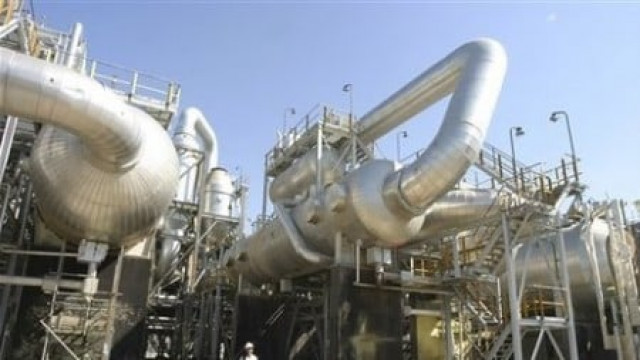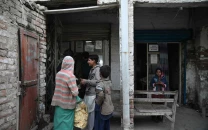Traditional paint industry faces rapid decline
Painters and labourers struggle as demand for conventional painting evaporates

Scientific advancements and innovative developments in wall and ceiling decoration have profoundly transformed the centuries-old trade of painting and decorating homes, large commercial plazas, and buildings, leaving the traditional paint and decorating industry now in decline and resulting in thousands of skilled workers and helpers becoming unemployed.
This downturn is accelerating rapidly, contributing to a marked increase in unemployment.
Consequently, painters, labourers, and assistants who once worked in markets and roadside paint shops now spend their days waiting in vain for casual work, often departing in the afternoon disheartened and unpaid. Many within the trade have begun seeking alternative livelihoods. Paint shops across the city markets are also diminishing in number.
Scientific progress has introduced a range of visually appealing alternatives to conventional paint, including panel sheets, wallpapers, PVD peelings, and PVC wall coverings. Even three-dimensional panels have become available. Unlike traditional paint, which tends to fade within one to three years, these panel sheets can last between 10 and 15 years.
Surveys indicate that urban homeowners increasingly prefer these panel sheets or novel peeling varieties over traditional paint. These alternatives are frequently refreshed with new designs every three to four months.
Chinese innovations have effectively upended the traditional paint industry. Arjumand Shah, President of the Paint Retailers Association, noted that over the past two years, the paint and decorating sector has suffered a severe setback. Chinese panel and peeling sheets are steadily replacing paint and colour, with new shops specialising in these products proliferating, while paint shops are in decline.
In Rawalpindi district alone, the number of paint shopkeepers affiliated with the association has fallen from 15,700 to 10,085 within two years. Many shopkeepers have exited the trade owing to dwindling profits, converting their premises from paint outlets to stores specialising in Chinese wall panels and peelings.
The closure of shops has consequently led to a reduction in skilled painters and helpers. A significant number of painters have transitioned to peeling work, which demands less physical exertion. As a result, some Pakistani paint manufacturing factories have begun shutting down.
Painter Fayyaz Mahmood, who learned the craft from his father and has been working in the trade for 26 years, reported a steep decline in work.
He now only works two days a week and is contemplating leaving the paint business entirely. New entrants are no longer joining the trade, and within the next three years, the traditional paint business is expected to all but vanish, though it is unlikely to disappear completely.
Customers concur that traditional paint has a limited lifespan, necessitating repainting every three years, which has driven the shift towards Chinese wall panels and peelings.
Homeowner Malik Zahid Awan remarked that painters were often demanding, requiring multiple breaks, meals, and tea, frequently taking an entire week to complete a job. Their charges had also risen considerably.
By contrast, the new Chinese panel sheets enable homeowners to decorate all the rooms in their homes once and enjoy them for 10 to 15 years without inconvenience. For this reason, many have abandoned traditional painting altogether.





















COMMENTS
Comments are moderated and generally will be posted if they are on-topic and not abusive.
For more information, please see our Comments FAQ